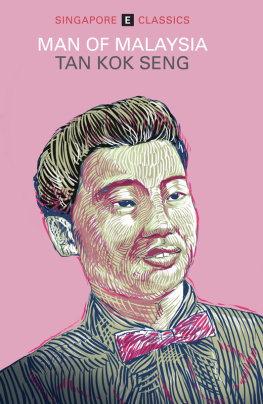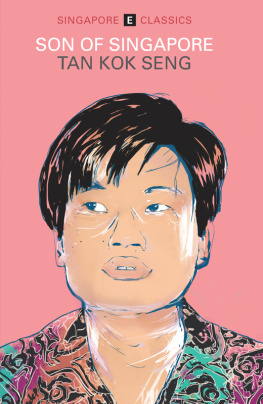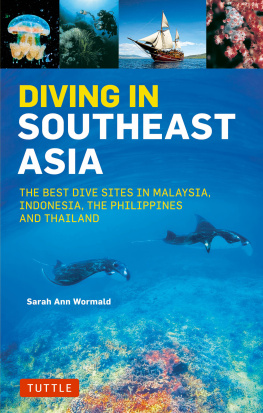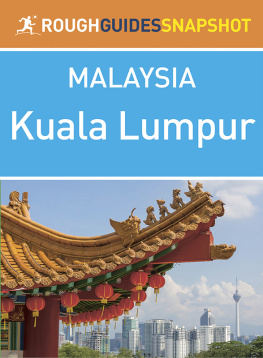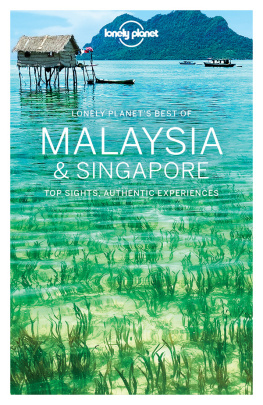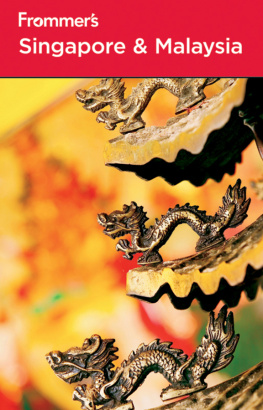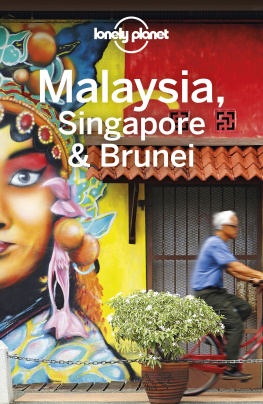TAN KOK SENG is the well-known author of a trilogy of books based on his life: Son of Singapore, Man of Malaysia and Eye on the World. His fourth book is a novel, originally published as Three Sisters of Sz, by Heinemann Asia in 1979.
Tans books were all written first in Chinese and afterwards rendered into English in a collaborative effort with his former employer, Austin Coates, for whom Tan worked in Malaysia and Hong Kong. Although his four books had been reprinted several times since their first publication, they were out of print for many years. Son of Singapore, Man of Malaysia and Three Sisters of Sze are now available from Epigram Books.
Tan resides in Singapore with his family.
OTHER BOOKS IN THE SINGAPORE CLASSICS SERIES
Green Is the Colour by Lloyd Fernando
Scorpion Orchid by Lloyd Fernando
The Immolation by Goh Poh Seng
Glass Cathedral by Andrew Koh
The Scholar and the Dragon by Stella Kon
Ricky Star by Lim Thean Soo
Spider Boys by Ming Cher
Son of Singapore by Tan Kok Seng
Three Sisters of Sze by Tan Kok Seng
The Adventures of Holden Heng by Robert Yeo
MAN OF MALAYSIA
TAN KOK SENG

Copyright 1974, 2013 by Tan Kok Seng
Introduction copyright 2013 by Ilsa Sharp
All rights reserved.
Published in Singapore by Epigram Books
www.epigrambooks.sg
Man of Malaysia was first published by
Heinemann Asia (Singapore) in 1974
Cover illustration 2013 by Nadirah Abdul Razak
Published with the support of

National Library Board,
Singapore Cataloguing-in-Publication Data
Tan, Kok Seng, author.
Man of Malaysia / Tan Kok Seng.
Singapore : Epigram Books, [2013]
pages cm.
ISBN : 978-981-07-6834-8 (paperback)
ISBN : 978-981-07-6835-5 (ebook)
1. Tan, Kok Seng. 2. Working class - Malaysia - Biography.
I. Title. II. Series: Singapore classics (Epigram Books)
CT1568.T36
920 -- dc23 OCN853596196
First Edition
10 9 8 7 6 5 4 3 2 1
To my wife
Introduction
We cannot be other than who we are. (166)
I N HIS OWN words, Tan Kok Seng signposts for us who he really is. With Kok Seng, what you see is what you get. He has no angles, no hidden meanings, indeed little subtlety. He is what he is: a naf.
Here is a person who can float serenely through the lives of the wealthy and privileged, quite unlike his own as a farmer turned coolie turned chauffeur turned soap salesman turned vegetable seller and poultry dealer; a person who can handle close encounters with larger-than-life personalities, from ambassadors and film stars such as William Holden to celebrity writers like Han Suyin, and yet remain virtually untouched by it all.
Although his life has played itself out for 75 years now against the backdrop of tectonic shifts in the geo-politics of his birthplace Malaya (todays Singapore and Malaysia), in truth Tan Kok Seng himself has remained largely unaware of the historical context in which he has operated, even when it has had huge impact on him. He has been too busy living.
In that, he is probably not much dissimilar from many poor and striving workers who understandably cleave to the small picture of their own lives as a matter of survival. How many eggs you can sell at market is far more important than why there is a curfew declared today.
His leading memory of Lee Kuan Yew, independent Singapores first prime minister, is a distant view of the leader playing golf with his Malay counterparts in the Cameron Highlands in the early 1960s. Kok Seng duly declares the game of golf boring. (165)
When he needed to travel for a work offer in the UK in 1964, Kok Seng blithely rolled up to the British High Commission with his colonial British passport, totally unaware that in 1963 British Malaya had become the Federation of Malaysia. To his amazement, he was told that he was now a Malaysian and as such would have quite some trouble entering the UK to work.
All of which is not to say that Kok Seng does not observe life acutely and draw from it some deep inferences. He is very much a homespun philosopher, as evidenced in passages like this, on Maxwells Hill in the Cameron Highlands:
It seemed as if the mountains, wave after wave of them, were like the sea, going outward forever into distance, till, far away, they became engulfed in clouds, and joinedmountain and sky in one. Standing there on top, facing the enormity of the world, I thought of myself as a man. How boundlessly small we are (70)
When he is invited by a generous colonial British friend to stay at the then classy Cameron Highlands Hotel, Kok Seng tosses and turns in his bed, sleepless as he struggles to sort out the eternal conundrum:
why is it in this world that people divide themselves into high and low?How many days would it take me to earn enough money to pay for one night here? In any part of the world, at any time, one reads newspapers and magazines proclaiming human equality. In actual life, does any human being treat another human being as an equal? (162)
As he himself says in this book, Kok Seng has attended the world university (141) or to put it another way, the university of life, and you might also say, graduated from it summa cum laude. When he catches out a British colonial accountant looking nonplussed at this notion, he muses, in a deliciously child-like, non-racist sort of way,
Europeans newly arrived in Asia for the first time, coming from their homelandit seems to me their minds are so simpleAn Asiancertainly a Chineseis born with a mind which is by nature more acute than that of a European. What use he makes of it is another matter, of course; but the acuteness is there. (141)
Here Kok Seng is again somewhat naf, because, being inexperienced in foreign cultures, what he is unable to fathom is that England is straitjacketed in a class system, so by no means all of the Europeans arriving to work in colonial Malaya hailed from the top rungs of that system, nor were they particularly well educated; they simply were automatically elevated above their station merely by taking up a position in Malaya and assuming the mantle of colonial master. Many were indeed no better than their local subordinates. But equally, Kok Seng was no ordinary Malayan either. He often fails to perceive his own superiority, as a consequence of the colonial ecosystem that was his early habitat.
Two misconceptions about Tan Kok Seng need to be dispelled: the first that he represents the essence of Chinese traditional culture, the second that one-time diplomat and celebrated author Austin Coates was his puppeteer when it comes to the literary style of his books.
That Kok Seng is quintessentially Chinese cannot be denied. However, he is also very much a man of his time and place: modernising post-World War II Malaya. He had, and still has, strongly iconoclastic instincts. Not for him the manners and mores of his farmer parents, whom he himself classifies as relics from Chinas 19th-century Qing dynasty in this book:
There and then, those ideas were valid; here and now, they were not. Even to this day, there are still a number of people with the same outlook and mentality. I still wonder at this changeless element in Chinese thinking, from which there can be no progressThese are people whose minds are stuck in the past. They are immovable. (5556)
Next page
